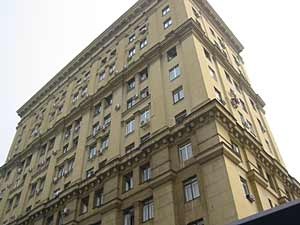
The system built to manage Russia’s nuclear legacy is crumbling, our new report shows
Our op-ed originally appeared in The Moscow Times. For more than three decades, Russia has been burdened with the remains of the Soviet ...
News

Publish date: June 14, 2018
News
In a blow to the international business interests of Russia’s state nuclear corporation Rosatom, Jordan has scrapped a plan to build a $10 billion nuclear power plant with Moscow’s help.
Jordan’s Atomic Energy Commission, the JAEC, said on Monday that the project, after three years of study and consideration, had collapsed over disagreements on how to finance the the build, which would have included two nuclear reactors built by Rosatom.
But canceling the larger plant, said the JAEC, doesn’t mean Jordan won’t be working with Russia on any nuclear projects at all. According to the commission, it’s possible that Rosatom would furnish the Mediterranean nation with small modular reactors instead.
On Monday, the commission said in a statement that the larger project was off because the commercial loans Rosatom wanted Joran to secure to finance construction would drive up the cost of the electricity the plant would eventually produce.
According to the initial memorandum of understanding that Jordan signed with Moscow in 2015, the plant would have produced 2,000 megawatts with two of Russia’s showcase VVER-1200 reactors, which are Rosatom’s primary foreign reactor offering.
Rosatom has boasted that it has a some $130 billion in its portfolio of outstanding foreign construction projects, most of them centered on the VVER-12000 reactor package.
But Jordanian media reported that the decision to shelve the project had been taken as long ago as May, and was only recently publicized.
Jordan, which depends on foreign oil and gas for 96 percent of its energy, has not given up on nuclear. The JAEC will now explore the use of small modular reactors, a concept under development in a number of countries, such as China and the UK, that would see smaller, portable reactors mass produced from standardized components.
Without specifically mentioning the cancellation of the larger plant, Rosatom said in a statement on May 27 that it and JAEC had decided to “intensify and step up” cooperation on small modular reactors and form a joint feasibility study for such a project based on Russian designs.
Yet what these reactors might consist of remains somewhat mysterious. Russia has signed agreements with other countries for work on small-scale reactors, most recently Sudan, to which it vaguely promised to build a floating nuclear power plant.
The idea that floating nuclear power plants might constitute the bulk of Rosatom’s small scale reactor design offerings isn’t so outlandish. In May, the Akademik Lomonosov, Russia’s first floating nuclear power plant, left the Baltic Shipping Company in St. Petersburg bound for Chukotka.
The plant, modeled on two KLT-40 nuclear icebreaker-style reactors, took over 13 years and $480 million to build – a hard-wrought investment Russia is not anxious squander. Throughout its arduous construction, Rosatom repeatedly said that foreign customers would flock to Moscow to order floating nuclear power plants of its own.
Those orders have yet to materialize, but that hasn’t stopped Rosatom from repeating the mantra that floating plants will be a prime offering to its foreign customers. Whether an offer to build Jordan a floating plant will come to pass remains unknown. But increasingly, the notion of floating plants seems synonymous with Rosatom’s small reactor development schemes.

Our op-ed originally appeared in The Moscow Times. For more than three decades, Russia has been burdened with the remains of the Soviet ...

The United Nation’s COP30 global climate negotiations in Belém, Brazil ended this weekend with a watered-down resolution that failed to halt deforest...

For more than a week now — beginning September 23 — the Zaporizhzhia Nuclear Power Plant (ZNPP) has remained disconnected from Ukraine’s national pow...

Bellona has taken part in preparing the The World Nuclear Industry Status Report 2025 and will participate in the report’s global launch in Rome on September 22nd.